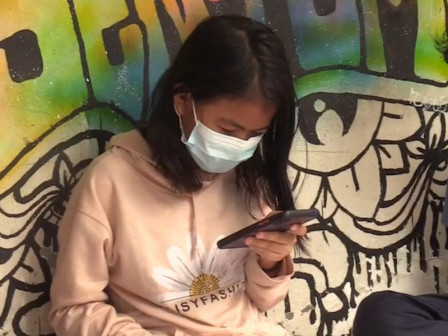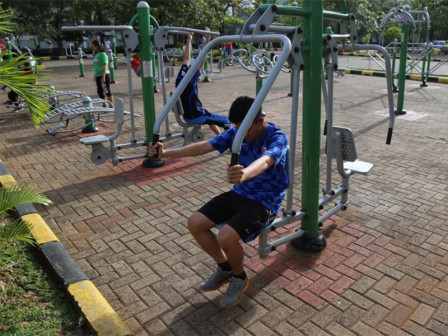Here is How to Maintain Children's Eye Health from Screen Time
Reported by Anita Karyati | Translated by Nugroho Adibrata
Long holidays are a moment that school children have been waiting for. After undergoing a busy school routine, the long holidays are an opportunity for them to play and do various fun activities.
Eye health symptoms in children are currently increasing due to excessive screen time
One of the games that children have been waiting for is using access to smart devices (gadgets). Unfortunately, this condition often makes parents too lazy to remind their children.
Meanwhile, spending too long on screen time tends to make children's bodies unhealthy.
Seribu Islands RSUD Keeps Improving its Facilities and InfrastructureTamansari RSUD Ophthalmologist, Faraby Martha said screen time activity is time spent watching television, using a computer or laptop, and playing with gadgets.
She explained excessive use of screen time would affect children's health such as causing eye fatigue.
"Eye health symptoms in children are currently increasing due to excessive screen time. We can immediately recognize the signs by the child's habit of rubbing their eyes, blinking frequently, dry eyes, and headaches," she explained, Thursday (12/28).
This screen time is linked to distance. It means that when you look at something up close, the muscles in the eye (ciliary muscles) contract and change the shape of the lens. It helps humans see clearly (accommodation function). After hours of contraction, the muscle becomes tired and begins to ache with the common symptoms of eye strain.
Besides having an impact on the eyes, it affects physical health, such as physical inactivity and obesity, sleep disorders, and body posture. Including mental health due to infrequent communication and difficulty concentrating.
"During this holiday period, parents are reminded to start controlling screen time and limiting gadgets for their children. Implement daily screen time limits and encourage children to do offline activities or play outside with the family," he exclaimed.
Tamansari RSUD's Medical Service and Nursing Section Head, Ngabila Salama added excessive activity in front of the screen could risk myopia (nearsightedness). Based on research, if a person has a lot of activities in front of the screen, he/she should apply the 20-20-20 rule.
That means that every 20 minutes you move your eyes, then look at an object 20 feet (six meters) away for 20 seconds. Efforts to minimize the risk of decreasing vision quality due to screen time can be made in various ways.
These include ensuring that the room where the child uses a screen is bright enough, setting the screen brightness level appropriately, and ensuring that the child's viewing distance is appropriate (25 inches).
"It's important for parents to encourage their children to read and exercise and provide good nutrition for the eyes. For instance carrots, oranges, nuts, fish, vitamins A, C, E, and omega-3," he finished.




